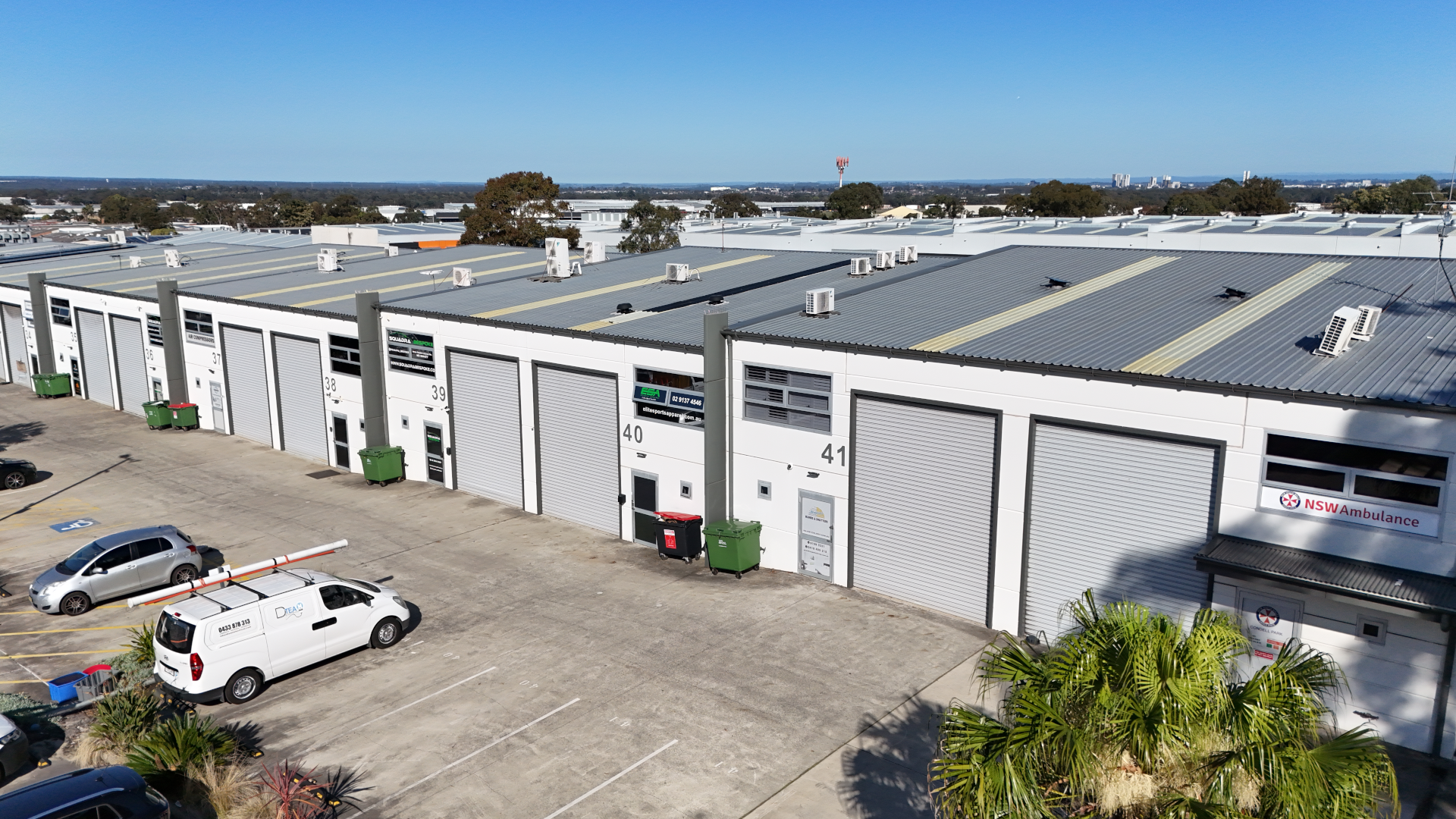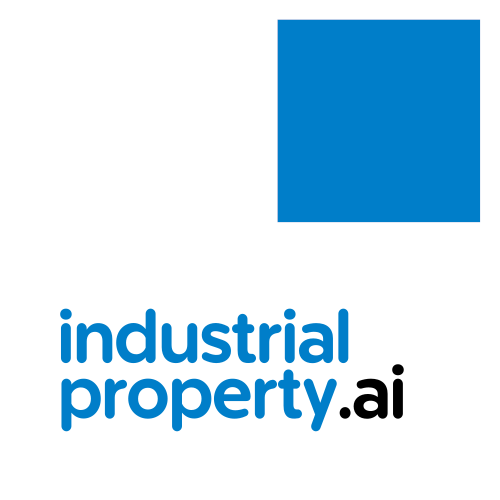MENU
Management
About us
MENU
-
-
-
Management
-
About us
-
Projects


Buying industrial strata off-the-plan in NSW involves purchasing a warehouse, factory, or storage unit in a proposed development before construction is complete (occupation cerificate is issued) or strata registration occurs. This can offer opportunities for customisation and potential value appreciation but is complex due to uncertainties, contruction delays, and market changes. Key considerations include developer reliability, approval status, property requirements, and appetite for financial risks. Thorough research is essential - review market trends, the developer, comparable properties, and legal documents. Understanding the full process, from structuring your purchasing entity to post-settlement, helps mitigate risks such as changes in design, tax implications, or sunset clauses allowing developer rescission. Governed by a combination of the Strata Schemes Development Act 2015, Conveyancing Act 1919, Local Enviornmental Plans (LEP), Development Control Plan (DEP), and State Enviornmental Planning Policy (SEPP), these purchases lack the protections of established properties, emphasising due diligence. Remember this is not legal advice – always consult your accountant and solicitor before making decisions related to purchasing industrial property off-the-plan.
Risks: Overlooking potential delays. Not understanding the process. Defects after completion.
Tips: Familarise yourself with the process. Do your research. Always vet the developer.
Your purpose influences strategy and considerations. Investors should aim to secure units early during project launch for lower prices and potential upside as approvals progress, focusing on rental yields, cap rates, and resale potential. Owner-occupiers should prioritise operational fit: assess requirements like ceiling height, floor loading, access for trucks, and utility needs; review estimated outgoing costs (e.g., strata levies); check draft strata by-laws for usage restrictions; and negotiate with the developer/builder for help with fitouts or modifications during construction to suit business operations. Both should evaluate long-term costs and flexibility.
Risks: For investors the project may be highly speculative. For owner-occupiers, don't overlook your business requirements and ensure the zoning is suiltable.
Tips: For investors, target high-demand industrial hubs. For occupiers, ensure scalability for business growth.
Choosing the right structure is crucial for tax, liability, and asset protection - consult an accountant early. Options include:
Factor in GST (commercial sales are often GST-inclusive) and claim input credits if registered.
Risks: Incorrect structure leading to unexpected taxes or financing hurdles.
Tips: Seek advice from your accountant early for compliance with Australian Taxation Office rules.
Explore listings on realcommercial.com.au and commercialrealestate.com.au for off-the-plan developments. Check known commercial agent websites, subscribe to newsletters / agent alerts / email lists for early notifications. Look for signboards consturction sites, or network with industrial property owners. Focus on locations with strong infrastructure (e.g., near ports, airports, arterial roads, and motorways) for industrial viability.
Risks: Relying solely on online listings and missing off-market opportunities.
Tips: Register interest in proposed projects and get on pre-market mailing lists.
Budget extras like GST (if applicable) and due diligence fees.
Risks: Underestimating total upfront outlay, which can exceed 10% of price.
Tips: Get everything in writing. Request a copy of the Draft Contract from the Agent and ask your solicitor to review it if you are not comfortable paying the holding deposit.
Developer credibility is key for project success. Double-check if they've built industrial before or if it's the first project. Ask the Agent about it and search the Developer online. Experienced Property Developers have websites showcasing past projects. Visit their completed sites in person for quality, look, and feel. New entities per project or SPVs (Special Purpose Vehicles) are normal (e.g., fresh ABN/ACN), but investigate the parent/management company for track record, financial stability, and reviews.
Risks: Overlooking red flags like past insolvencies, hidden history, and compliants.
Tips: Look for solid Developer experience. Visit a past project for a walk-through - talk to occuipers about their experience if possible.
Developer credibility is key for project success. Double-check if they've built industrial before or if it's the first project. Ask the Agent about it and search the Developer online. Experienced Property Developers have websites showcasing past projects. Visit their completed sites in person for quality, look, and feel. New entities per project or SPVs (Special Purpose Vehicles) are normal (e.g., fresh ABN/ACN), but investigate the parent/management company for track record, financial stability, and reviews.
Risks: Overlooking red flags like past insolvencies, hidden history, and compliants.
Tips: Look for solid Developer experience. Visit a past project for a walk-through - talk to occuipers about their experience if possible.
Developer credibility is key for project success. Double-check if they've built industrial before or if it's the first project. Ask the Agent about it and search the Developer online. Experienced Property Developers have websites showcasing past projects. Visit their completed sites in person for quality, look, and feel. New entities per project or SPVs (Special Purpose Vehicles) are normal (e.g., fresh ABN/ACN), but investigate the parent/management company for track record, financial stability, and reviews.
Risks: Overlooking red flags like past insolvencies, hidden history, and compliants.
Tips: Look for solid Developer experience. Visit a past project for a walk-through - talk to occuipers about their experience if possible.
Developer credibility is key for project success. Double-check if they've built industrial before or if it's the first project. Ask the Agent about it and search the Developer online. Experienced Property Developers have websites showcasing past projects. Visit their completed sites in person for quality, look, and feel. New entities per project or SPVs (Special Purpose Vehicles) are normal (e.g., fresh ABN/ACN), but investigate the parent/management company for track record, financial stability, and reviews.
Risks: Overlooking red flags like past insolvencies, hidden history, and compliants.
Tips: Look for solid Developer experience. Visit a past project for a walk-through - talk to occuipers about their experience if possible.
Developer credibility is key for project success. Double-check if they've built industrial before or if it's the first project. Ask the Agent about it and search the Developer online. Experienced Property Developers have websites showcasing past projects. Visit their completed sites in person for quality, look, and feel. New entities per project or SPVs (Special Purpose Vehicles) are normal (e.g., fresh ABN/ACN), but investigate the parent/management company for track record, financial stability, and reviews.
Risks: Overlooking red flags like past insolvencies, hidden history, and compliants.
Tips: Look for solid Developer experience. Visit a past project for a walk-through - talk to occuipers about their experience if possible.
Developer credibility is key for project success. Double-check if they've built industrial before or if it's the first project. Ask the Agent about it and search the Developer online. Experienced Property Developers have websites showcasing past projects. Visit their completed sites in person for quality, look, and feel. New entities per project or SPVs (Special Purpose Vehicles) are normal (e.g., fresh ABN/ACN), but investigate the parent/management company for track record, financial stability, and reviews.
Risks: Overlooking red flags like past insolvencies, hidden history, and compliants.
Tips: Look for solid Developer experience. Visit a past project for a walk-through - talk to occuipers about their experience if possible.
Developer credibility is key for project success. Double-check if they've built industrial before or if it's the first project. Ask the Agent about it and search the Developer online. Experienced Property Developers have websites showcasing past projects. Visit their completed sites in person for quality, look, and feel. New entities per project or SPVs (Special Purpose Vehicles) are normal (e.g., fresh ABN/ACN), but investigate the parent/management company for track record, financial stability, and reviews.
Risks: Overlooking red flags like past insolvencies, hidden history, and compliants.
Tips: Look for solid Developer experience. Visit a past project for a walk-through - talk to occuipers about their experience if possible.
Developer credibility is key for project success. Double-check if they've built industrial before or if it's the first project. Ask the Agent about it and search the Developer online. Experienced Property Developers have websites showcasing past projects. Visit their completed sites in person for quality, look, and feel. New entities per project or SPVs (Special Purpose Vehicles) are normal (e.g., fresh ABN/ACN), but investigate the parent/management company for track record, financial stability, and reviews.
Risks: Overlooking red flags like past insolvencies, hidden history, and compliants.
Tips: Look for solid Developer experience. Visit a past project for a walk-through - talk to occuipers about their experience if possible.
Developer credibility is key for project success. Double-check if they've built industrial before or if it's the first project. Ask the Agent about it and search the Developer online. Experienced Property Developers have websites showcasing past projects. Visit their completed sites in person for quality, look, and feel. New entities per project or SPVs (Special Purpose Vehicles) are normal (e.g., fresh ABN/ACN), but investigate the parent/management company for track record, financial stability, and reviews.
Risks: Overlooking red flags like past insolvencies, hidden history, and compliants.
Tips: Look for solid Developer experience. Visit a past project for a walk-through - talk to occuipers about their experience if possible.
Developer credibility is key for project success. Double-check if they've built industrial before or if it's the first project. Ask the Agent about it and search the Developer online. Experienced Property Developers have websites showcasing past projects. Visit their completed sites in person for quality, look, and feel. New entities per project or SPVs (Special Purpose Vehicles) are normal (e.g., fresh ABN/ACN), but investigate the parent/management company for track record, financial stability, and reviews.
Risks: Overlooking red flags like past insolvencies, hidden history, and compliants.
Tips: Look for solid Developer experience. Visit a past project for a walk-through - talk to occuipers about their experience if possible.
Developer credibility is key for project success. Double-check if they've built industrial before or if it's the first project. Ask the Agent about it and search the Developer online. Experienced Property Developers have websites showcasing past projects. Visit their completed sites in person for quality, look, and feel. New entities per project or SPVs (Special Purpose Vehicles) are normal (e.g., fresh ABN/ACN), but investigate the parent/management company for track record, financial stability, and reviews.
Risks: Overlooking red flags like past insolvencies, hidden history, and compliants.
Tips: Look for solid Developer experience. Visit a past project for a walk-through - talk to occuipers about their experience if possible.
Developer credibility is key for project success. Double-check if they've built industrial before or if it's the first project. Ask the Agent about it and search the Developer online. Experienced Property Developers have websites showcasing past projects. Visit their completed sites in person for quality, look, and feel. New entities per project or SPVs (Special Purpose Vehicles) are normal (e.g., fresh ABN/ACN), but investigate the parent/management company for track record, financial stability, and reviews.
Risks: Overlooking red flags like past insolvencies, hidden history, and compliants.
Tips: Look for solid Developer experience. Visit a past project for a walk-through - talk to occuipers about their experience if possible.
Developer credibility is key for project success. Double-check if they've built industrial before or if it's the first project. Ask the Agent about it and search the Developer online. Experienced Property Developers have websites showcasing past projects. Visit their completed sites in person for quality, look, and feel. New entities per project or SPVs (Special Purpose Vehicles) are normal (e.g., fresh ABN/ACN), but investigate the parent/management company for track record, financial stability, and reviews.
Risks: Overlooking red flags like past insolvencies, hidden history, and compliants.
Tips: Look for solid Developer experience. Visit a past project for a walk-through - talk to occuipers about their experience if possible.
Developer credibility is key for project success. Double-check if they've built industrial before or if it's the first project. Ask the Agent about it and search the Developer online. Experienced Property Developers have websites showcasing past projects. Visit their completed sites in person for quality, look, and feel. New entities per project or SPVs (Special Purpose Vehicles) are normal (e.g., fresh ABN/ACN), but investigate the parent/management company for track record, financial stability, and reviews.
Risks: Overlooking red flags like past insolvencies, hidden history, and compliants.
Tips: Look for solid Developer experience. Visit a past project for a walk-through - talk to occuipers about their experience if possible.
Developer credibility is key for project success. Double-check if they've built industrial before or if it's the first project. Ask the Agent about it and search the Developer online. Experienced Property Developers have websites showcasing past projects. Visit their completed sites in person for quality, look, and feel. New entities per project or SPVs (Special Purpose Vehicles) are normal (e.g., fresh ABN/ACN), but investigate the parent/management company for track record, financial stability, and reviews.
Risks: Overlooking red flags like past insolvencies, hidden history, and compliants.
Tips: Look for solid Developer experience. Visit a past project for a walk-through - talk to occuipers about their experience if possible.
Developer credibility is key for project success. Double-check if they've built industrial before or if it's the first project. Ask the Agent about it and search the Developer online. Experienced Property Developers have websites showcasing past projects. Visit their completed sites in person for quality, look, and feel. New entities per project or SPVs (Special Purpose Vehicles) are normal (e.g., fresh ABN/ACN), but investigate the parent/management company for track record, financial stability, and reviews.
Risks: Overlooking red flags like past insolvencies, hidden history, and compliants.
Tips: Look for solid Developer experience. Visit a past project for a walk-through - talk to occuipers about their experience if possible.
Developer credibility is key for project success. Double-check if they've built industrial before or if it's the first project. Ask the Agent about it and search the Developer online. Experienced Property Developers have websites showcasing past projects. Visit their completed sites in person for quality, look, and feel. New entities per project or SPVs (Special Purpose Vehicles) are normal (e.g., fresh ABN/ACN), but investigate the parent/management company for track record, financial stability, and reviews.
Risks: Overlooking red flags like past insolvencies, hidden history, and compliants.
Tips: Look for solid Developer experience. Visit a past project for a walk-through - talk to occuipers about their experience if possible.
Leasing industrial strata in NSW offers opportunities but demands diligence. By understanding these elements and seeking legal advice were applicable, you can secure a lease that supports your business growth.

This guide was prepared by Rafael Orellana, Managing Director and Licensee in Charge at industrialproperty.ai and licensed commercial real estate agent with over 20 years of experience in the property industry.
